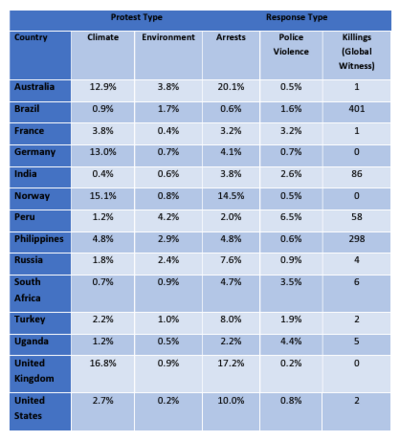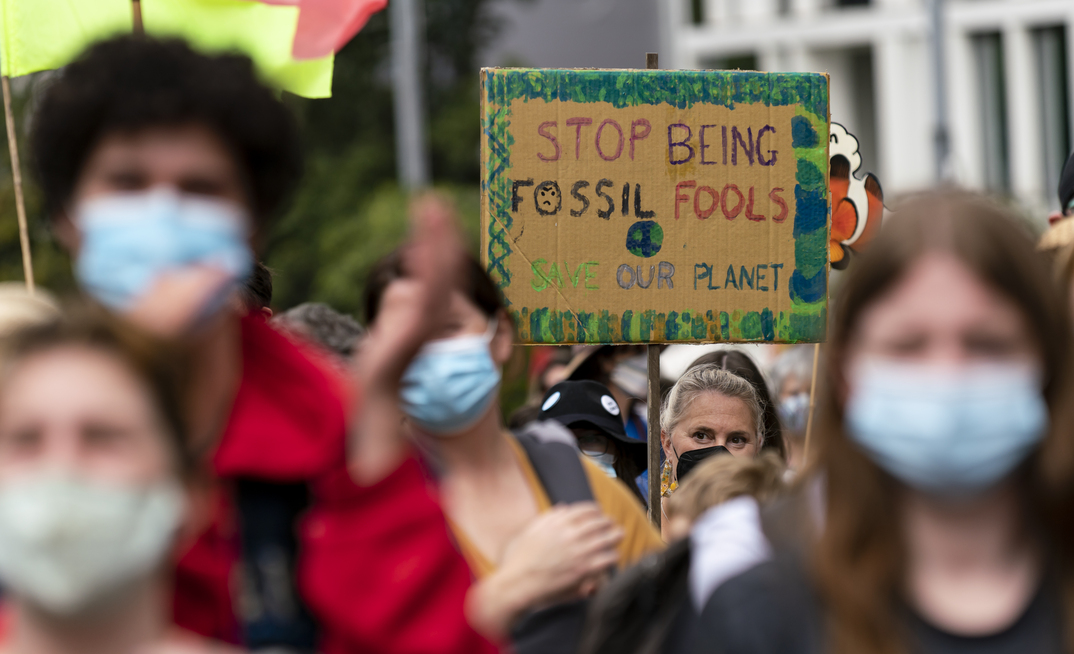Australia – which prides itself on its easy-going approach to life and its fair-go attitude – has the world's highest arrest rate for environmental protests and activism.
That's one of the conclusions from a University of Bristol study that has examined global statistics on environmental activism - revealing more than 2,000 climate and environmental protesters have been killed over the past 12 years and that a raft of new anti-protest legislation has been enacted.
YOU MIGHT ALSO LIKE
The researchers found that in Australia, one in five incidences of environmental protest involves an arrest. And when Extinction Rebellion (XR) is involved in the protest the figure rises to almost double that. Meanwhile, the international average is 6.3%.

Lead author Dr Oscar Berglund, Senior Lecturer in International Public and Social Policy at the University's School for Policy Studies, said: "This research sheds important light on how the growing pursuit of climate and environmental protest is being handled globally. Our evidence clearly shows a global crackdown on liberal democracies as well as autocracies.
"This is worrying because it focuses state policy on punishing dissent against inaction on climate and environmental change instead of taking adequate action on these issues. It also represents authoritarian moves inconsistent with the ideals of vibrant civil societies in liberal democracies."
Berglund and the report's co-authors call for governments, police forces, and the legal system to protect people's rights to peaceful assembly and freedom of expression.
Researchers have examined data from the Armed Conflict Location & Event Data (ACLED) and Global Witness to show how anti-protest laws are increasing in different countries. They highlight how governments are responding to protests and what this means for people's rights and freedoms.

Berglund said: "Climate and environmental protests are increasingly prevalent, for good reason, as the climate crisis worsens, and responses to this activity are evolving at pace.
"Further research is needed to better understand the situation so suitable measures can be identified and implemented to protect human rights and keep protesters safe."
Numerous court cases are progressing in Western Australia after protestors were arrested for attempting to disrupt Woodside's annual general meeting and for protesting outside CEO Meg O'Neill's Perth home. These events have ignited discussions on corporate governance and the right to protest.
A spokesperson from XR said the organisation has experienced high levels of arrests as part of their tactics "to show our commitment to the issue of climate justice and also ensure media coverage.
"However more recently, penalties have been increased, bail conditions have become more harsh, and extreme measures such as police raids for very minor offences have been employed.
"We are yet to see the impact this will have on non-violent, direct action - hopefully it will galvanise more people into action."
A statement from Blockade Australia, responding to the report, said: "This comes as no shock to those who've been targeted, harassed and repressed by the state.
"The system here will do what it can get away with, slowly dismantling any protection or freedom to protest, arresting and repressing wherever possible."
The report cited numerous examples of newly created legislation: "New legislation introduced in the United Kingdom and Australia, for example, is directly motivated by the perceived need to curb the actions of these groups.
"In this sense, we can suggest that climate protests are being criminalised in these countries through the development of new legislation. At the same time, the legislation passed in those countries generally increases the penalty for specific types of action, particularly the more disruptive protests of direct-action groups."
























